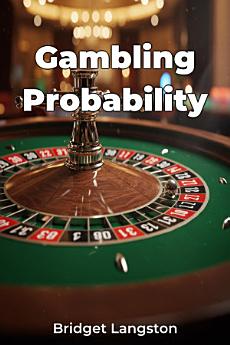Gambling Probability
About this ebook
One intriguing fact is how the house edge, though seemingly small, guarantees long-term gains for casinos. Another is that understanding expected value and variance can empower players to make more informed decisions, even if it cannot overcome the house advantage.
This book progresses logically, starting with basic probability concepts and their applications to simple games. It then delves into the complexities of the house edge in various casino games like dice, cards, and roulette.
The book advances into statistical methods for risk management and concludes with advanced betting strategies and the economic impact of the gambling industry.
The approach emphasizes clarity and precision, using mathematical models and real-world data to make complex concepts accessible.








